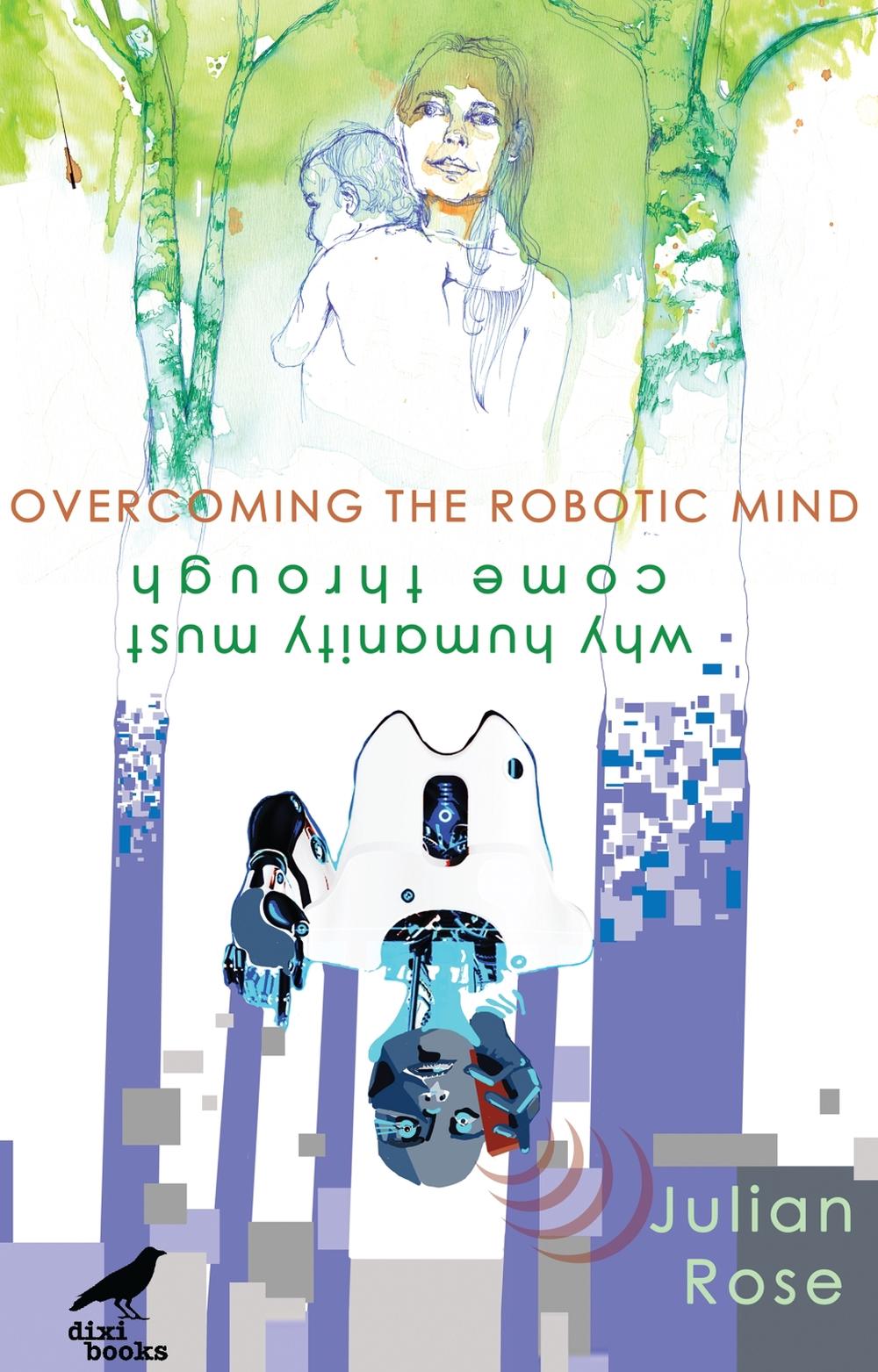
Overcoming the Robotic Mind
Why Humanity Must Come Through
- Paperback
232 pages
- Release Date
27 June 2019
Summary
Between the covers of Overcoming the Robotic Mind - Why Humanity Must Come Through is a cornucopia of vital information which will combine to dispel the illusions of the unaware and put in place a lucid vision of another way forward for mankind. Drawing upon his highly diverse experiences as an actor, organic farming pioneer, political activist, broadcaster, social entrepreneur, holistic educator and international campaigner, Julian Rose presents a compelling view of the way to break through …
Book Details
| ISBN-13: | 9786197458473 |
|---|---|
| ISBN-10: | 6197458470 |
| Author: | Julian Rose |
| Publisher: | Dixi Books Publishing OOD |
| Imprint: | Dixi Books Publishing OOD |
| Format: | Paperback |
| Number of Pages: | 232 |
| Release Date: | 27 June 2019 |
| Weight: | 266g |
| Dimensions: | 24mm x 272mm x 136mm |
What They're Saying
Critics Review
The authors integrity, honesty and sincerity shine out from each page and the ever-present guiding thought that There is no us and them. There is only us. is a powerful, uplifting and crucial assertion. Finding a way to enable everyone to understand and desire such a truth, occupies the entire book and draws on Julian Roses committed and tireless engagement with the forces that shape our world It is a call for action and we all have, floating around in our subconscious, the knowledge that harm is not done by those who are bad but by those who do nothing.– Rosamund Young, an early pioneer of organic farming in the UK and the author of an internationally acclaimed book called The Secret Life of Cows.“I was touched by the uncompromising analysis of how earth and all life on it is under threat. Even more so by Julians dedication to find ways to overcome our ever faster slide into a dystopian future where the robotic mind, artificial intelligence and the internet of things will dominate and enslave humanity and all life. Julian shows how interconnected things are. One cannot separate our health from the effects of the electronic communication gadgets which steal more and more of our real lives. Nor can one separate the poisoning of the environment from the cut-throat non-morality of the dominant economic system. In his book, Julian touched on many things such as politics, agriculture, genetics, trans-humanism, war, technology, de-population, religion and spirituality. He inspires us to remember our own powers and responsibilities and gives us ideas of how we can overcome it. He reminds us of the power of NO, meaning having enough of the madness and the will to NOT go along with it any longer. Julian suggests that we return, by necessity, to our roots and that all those who can read the writing on the wall, should set their sights on getting re-earthed before the fault lines of change finally swallow up the outmoded and dysfunctional practices of yesteryear. – R. Tecihman, an activist, writer, poet and a retired sea captain.I find Julians book quite wonderful. The more so in that the series of essays unfold with the continuity and unity of a well-written novel. And yet nothing is fictional, all of it actual. – Harvey Grossman, an internationally recognised theatre director and co-founder of The Institute for Creative Development.
About The Author
Julian Rose
Julian Rose is one of the pioneers of UK organic farming, commencing the conversion of his farm in 1975. He joined the Soil Association board in 1984 and campaigned vigorously for the widespread introduction of organic farming methods at a time when this system was not known. Julian achieved notoriety when he brought a cow up to London (Hyde Park Festival of Farming) and demonstrated vociferously against a government attempt to ban unpasteurised milk. Julian went on to develop his farm as a mixed organic enterprise selling all its main produce locally, while refusing to sell to supermarkets. He developed a theory of local production and consumption which he named “The Proximity Principle.”
Returns
This item is eligible for free returns within 30 days of delivery. See our returns policy for further details.




